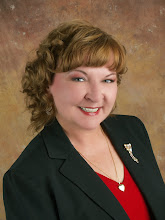I was raised by a mother who grew up in the 1920’s
and 1930’s on a cotton farm in Delano, California. She was a transplanted Texan who used many country
colloquialisms and passed the same onto me.
One of my favorites was “You can put lipstick on a pig, but it’s still a
pig.” Her favored vernacular gave me a
fond appreciation for language and how language can be used to make something
sound like something it’s not.
Last week, I received a talking points sheet on “Local
Choice.” Everybody likes “choice” right? I mean we’re red-blooded Americans after
all. The document deals with the
broadcast retransmission battle going on in Congress in the course of the
Satellite Television Extension and Localism Act or STELA. The premise of Local Choice is to put power
into the hands of the cable subscriber by “allowing” them to choose whether or
not to pay for broadcast stations. And it poses a direct payment system by which
broadcasters charge the subscriber a set rate, cable collects the fee and gives
it back to the broadcasters.
The fact sheet talks about how there will be no more
hidden retransmission costs on their subscribers bills and offers them more
opportunity to control the cost of their cable bill. It also guarantees that religious stations,
PBS stations and PEG access station programming will be carried like they are
today.
Pig with lipstick still equals pig, as my mama would
say. And frankly, it’s one helluva
dangerous pig.
First, this plan has cable operators stumbling
straight into the a-la-carte battle, one they will surely lose if they adopt
this model. We cable subscribers are
paying $7.50 or more per month to get ESPN.
And frankly, I don’t like having to pay for MSNBC, the Golf Channel,
Cartoon Network, Nickelodeon, Disney, MTV, Style, ABC Family, E! Entertainment,
and the Learning Channel (which hasn’t taught anybody anything in quite some
time). So just eliminating those from my
lineup would save me about $11.50 a month or $138.00 per year. Actually it’s probably more, my calculations
are based on a Time Warner programming cost filing that’s over a year old.
Second, it’s cable’s attempt to squeeze out the
broadcasters, something us PEG folks know quite a bit about. We are the canary in the coal mine when it
comes to dealing with cable operators.
We know from our experience they never, ever do anything that doesn’t
benefit them and they are certainly willing to tell localism to go take a hike,
evidenced by what they have done to PEG access television in twenty-two
states.
Which cracks me up all the more reading the fact
sheet, they say this plan will “reinvigorate key national broadcasting values
like localism and serving the public interest.”
The only localism cable operators have ever had were what we provided
them on the PEG channels and even then, they do everything they can to wipe us
out. And as for public interest? Please pig, just because you thought you’d
look good with Cover Girl #195, doesn’t take away the fact that you are a pig.
Third, and most important to PEG, having a Basic
tier that is reduced to PEG, PBS and Home Shopping, ghettoizes us yet
again. It’s bad enough Charter slams our
channels to 980 and BrightHouse slams us into the 600’s, taking away our
proximity to the local broadcast channels puts us smack into the desert.
I do appreciate that PEG receives a nod in the
document but giving us a nod and coming out with a robust endorsement are two
different things. I have spent four
years working on the Community Access Preservation Act which will preserve and
protect PEG access television, I could use a bit more love, like right now.
My only hope is that somehow this plan gets the
light of day it deserves, in the mainstream media. It is my belief that if I surveyed 100,000
people tomorrow they would tell me, to a person, that they hate cable. And they would further tell me how much they
love their local broadcasters, many even going so far as to name anchors or
show segments. So there’s a part of me
that hopes this plan gets some head wind so we can have a robust national
discussion on cable a-la-carte.
That would be a pig I wouldn’t mind kissin.




